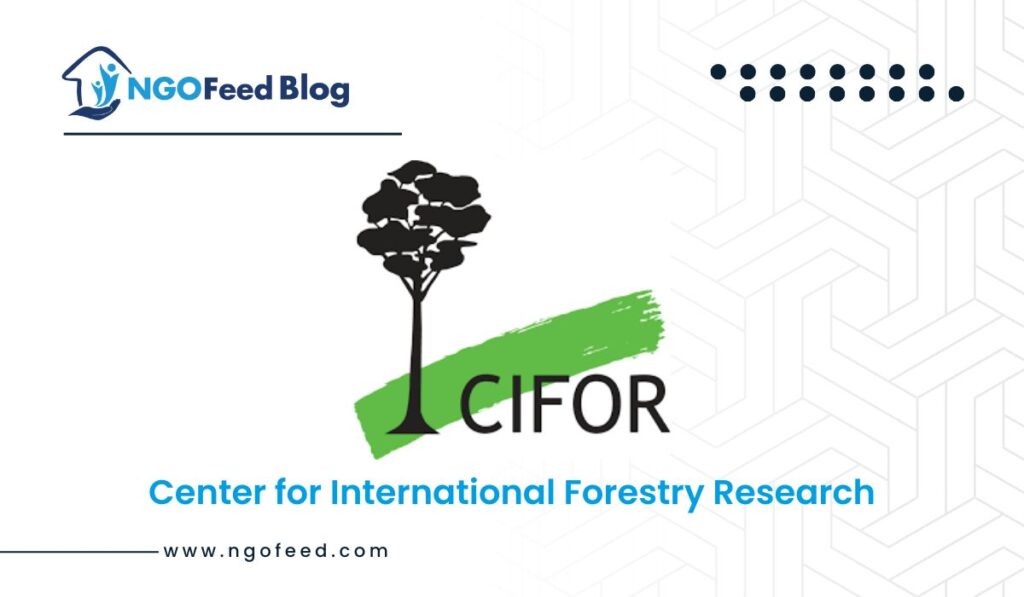CIFOR Full Form: The planet’s lungs and forests are essential for controlling climate, preserving biodiversity, and providing food for millions of people. Globally, the Center for International Forestry Research (CIFOR) is leading the way in the advancement of sustainable forestry techniques. This blog explores the background, purposes, and worldwide influence of CIFOR, highlighting its critical role in determining the direction of environmental protection and forestry in the future.
Table of Contents
What is CIFOR
The Center for International Forestry Research (CIFOR) is a popular international research organization that was founded in 1993 to expand knowledge about tropical forests and their significance for the health of humans and the environment. The goal of CIFOR is to advance sustainable forest management by means of excellent research and collaborative efforts that facilitate accurate policy and decision-making. CIFOR, which has its headquarters in Bogor, Indonesia, is a part of the Consultative Group on International Agricultural Research (CGIAR) system, an international network of research institutes dedicated to enhancing environmental and agricultural practices.
A Brief History of CIFOR
CIFOR was established at a critical juncture in environmental history, as knowledge of deforestation and its effects on the environment around the world was expanding. The world community realized in the early 1990s how urgently specialist study on tropical forests—regions increasingly endangered by human activity but vital to biodiversity—was needed. In response to this call to action, CIFOR was established to fill the knowledge gap and offer scientific insights into the conservation and management of forests.
With time, CIFOR’s primary area of interest shifted from tropical forestry to more general environmental and socioeconomic issues including land use, climate change, and sustainable livelihoods. The increasing complexity of the world’s environmental problems and the demand for comprehensive solutions are reflected in the organization’s evolution.
Functions and Core Areas of CIFOR
The work of CIFOR is diverse, tackling some topics of forest ecosystems and how they interact with human populations. The following are some of CIFOR’s primary duties and fields of study:
- Research and Innovation: CIFOR carries out state-of-the-art studies on biodiversity, forest ecosystems, climate change, and socioeconomic aspects affecting the management of forests. The company generates scientific knowledge that guides practice and policy.
- Policy Support: To create and carry out evidence-based policies, CIFOR collaborates with governments, international organizations, and legislators. Their study contributes to the development of international and national frameworks for sustainable management and forest conservation.
- Capacity Building: CIFOR makes investments to enhance the capabilities of institutions, researchers, and local communities. They provide stakeholders with the tools they need to manage forests sustainably through cooperative projects and training initiatives.
- Global Networking: CIFOR promotes international cooperation between scientists, decision-makers, and practitioners. CIFOR facilitates communication and knowledge sharing between research and practice by setting up forums for discussion.
- Publications & Knowledge Distribution: CIFOR publishes a wide range of materials, such as policy briefings, research reports, and scholarly articles. These tools are essential for advancing global conversation on forestry challenges and knowledge sharing.
Global Impact of CIFOR
The work of CIFOR has an impact on sustainable development and forest conservation policies and practices that cut across continents. CIFOR has made a significant contribution in the following important areas:
- Mitigation of Climate Change: Understanding and addressing the role of forests in climate change has been made possible by CIFOR’s studies on forest carbon stocks and deforestation rates. Their efforts assist international programs like REDD+ (Reducing Emissions from Deforestation and Forest Degradation), which aims to reduce greenhouse gas emissions by conserving forests.
- Biodiversity Conservation: CIFOR supports initiatives to save endangered species and preserve ecosystem services by researching the connection between forests and biodiversity. Their study aids in the establishment of conservation plans that strike a balance between the needs of the environment and human growth.
- Sustainable Livelihoods: CIFOR emphasizes the value of incorporating local populations into forest management by focusing on the socioeconomic aspects of forestry. Their initiatives frequently result in better lives for those who depend on forests, encouraging environmentally and socially responsible activities.
- Policy Influence: International and national forestry and land use policies are informed by the empirical research conducted by CIFOR. Their research informs laws and agreements that support environmental preservation and sustainable development.
- Creative Solutions: CIFOR’s focus on multidisciplinary research and creative solutions results in fresh methods for dealing with difficult forestry problems. Their efforts frequently provide useful tools and approaches that are embraced by communities, organizations, and governments.
Conclusion
CIFOR plays an increasingly important role in promoting sustainable forestry and conservation as the threats to our environment grow. To promote a more sustainable interaction between humans and the natural world, their research, policy support, and capacity-building initiatives are crucial.

